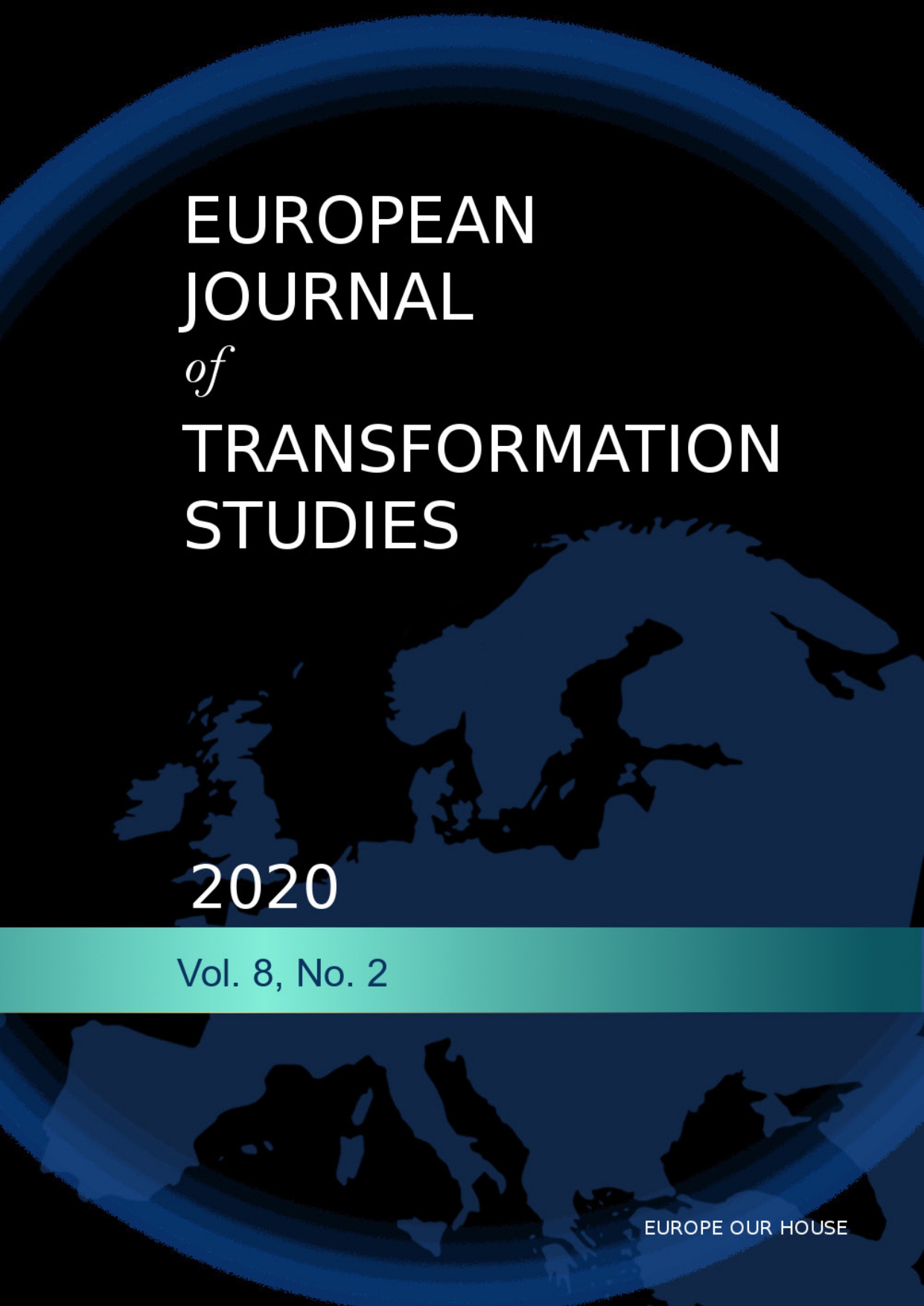Crisis Management in the Era of the Global Network. The Case of Qatari responsive Policy vs. the Antiterror Quartet Sanctions
Słowa kluczowe:
Gulf Crisis, sanctions, crisis management, Qatar, anti-terror quarteAbstrakt
Crisis management and the global network were the two fundamental methods that Qatar has used to avoid and mitigate the negative impact of sanctions imposed by the so-called Anti-Terror Quartet states (Saudi Arabia, United Arab Emirates, Bahrain and Egypt). They have also served in the process of recovery of security after the internal crisis. The research objective of the article is the presentation of Qatar’s anti-sanction policy, one based on these two remedies (crisis management and global network) that turned out to be successful and as such may become a model useful for other states that face a similar threat.
Downloads
Bibliografia
Al-Arabiya, (2017), Qatar ‘spends $5 million on PR campaigns’ to polish country’s image, 16.10. 2017, available online at http://english.alarabiya.net/en/features/2017/10/16/Qatar-boosts-PR-spending-to-polish-country-s-image-amid-Gulf-boycott.html.
Al-Jazeera, (2018), Qatar: UN report proof Saudi-led blockade illegal, 8.1.2018, available online at https://www.aljazeera.com/news/2018/01/qatar-report-proof-saudi-led-blockade-illegal-180108152547009.html.
Baabood, A., (2017), Qatar’s Resilience Strategy and Implications for State-Society Relations, IAI Working Papers 17.
Bapat, N., Tobias, H., Yoshiharu, K., Clifton, M., (2013), Determinants of Sanctions Effectiveness: Sensitivity Analysis Using New Data, in International Interactions. Empirical and Theoretical Research in International Relations 39.
Bundy, J, Pfarrer, M., Short, C., Coombs, T., (2017), Crises and crisis management: Integration, interpretation, and research development, in Journal of Management, 43.6.
Castells, M., (2009), The Rise of the Network Society, The Information Age: Economy, Society, and Culture 1.
Drezner, D., (2000), Bargaining, Enforcement and Multilateral Sanctions: When is Cooperation Counterproductive?, in International Organization 54.
Dreyer, I., Popescu, N., (2014), Do sanctions against Russia work, in European Union Institute for Security Studies 35.
Dudley, D., (2018), Qatar Airways Slumps Into The Red With $69M Loss, As Impact Of Boycott Becomes Clear, in Forbes, 19.8.2018, available online at https://www.forbes.com/sites/ dominicdudley/2018/09/19/qatar-airways-slumps-to-loss/#b66fb9837e70.
Feldman, N., Guzansky, Y., (2017), The Crisis in the Gulf: A Case Study of the Effectiveness of Sanctions as a Tool for Conducting Policy, in INSS Insight 966.
Friedman, T., (2006), The World Is Flat: A Brief History of the Twenty-first Century, Farrar Straus and Giroux, New York.
Fung, V., Fung, W., Wind, Y., (2007), Competing in a Flat World: Building Enterprises for a Borderless World, Pearson Education, New Jersey.
Hasan, H., (2018), The Qatar guiwde to surviving an economic boycott, in Middle East Monitor, 23.3.2018, available online at https://www.middleeastmonitor.com/20180323-the-qatar-guide-to-surviving-an-economic-boycott/.
Hodgson, C. (2017), Qatar has boosted spending by 282% to become the world’s 3rd biggest weapons importer, in Business Insider, 10.8.2017, available online at https://www.businessinsider.com/qatar-becomes-worlds-third-biggest-weapons-importer-in-two-years-2017- 8?IR=T.
Jansen, M., (2014), Saudi Arabia threatens to blockade Qatar over terrorism, in Irish Times, 11.3.2014, available online at www.irishtimes.com/news/world/asia-pacific/saudi-arabia-threatens-to-blockade-qatar-over-terrorism-1.1719434.
Joshi, S., Mahmud, A.S., (2018), Unilateral sanctions: A network approach, in Journal of Economic Behaviour and Organization 145.
Kerr, S., (2018), Qatar attempts to build its way out of a blockade, in Financial Times, 16.5.2018, available online at https://www.ft.com/content/a39cd232-5517-11e8-b24e-cad6aa67e23e.
Kim, H.M., (2013), Determining the Success of Economic Sanctions, in Australian Journal of Political Science 48.1.
Kumar, P.P., (2018), Qatar Crisis and the Deepening Regional Faultlines, in Strategic Analysis 42.4.
Quraeshi, Z., Luqmani, M., (2017), Qatar and Russia: What Do They See in Each Other?, in Middle East Policy Council, 11.10.2017, available online at www.mepc.org/commentary/qatar-and-russia-what-do-they-see-each-other.
Reuther., D., (1995), UN sanctions against Iraq, in D. Cortight (ed.) Economic sanctions. Panacea or peacebuilding in a post-cold war world, Routledge, New York.
Sergie, M., (2018), Qatar Said to See $40 Billion Income Gain From Gas Expansion, in Bloomberg, 26.8. 2018, available online at https://www.bloomberg.com/news/articles/2018-09-26/qatar-wants-to-get-even-bigger-in-gas-as-race-with-u-s-heats-up.
Sethna, B., (2008). Ghemawat v. Friedman: Is the World Flat?, in Decision Line 39.4.
Sofuouglu, M., Alemdar M., (2018), Have U.S.-imposed sanctions ever worked?, 24.8.2018, available online https://www.trtworld.com/magazine/have-us-imposed-sanctions-everworked-20428.
The Peninsula, (2018), 90% rise in building permits issuance, 13.8.2018, available online at https://www.thepeninsulaqatar.com/article/13/08/2018/90-rise-in-building-permits-issuance.
Torbat, A., (2005), Impacts of the U.S. Trade and Financial Sanctions on Iran, in The World Economy 28.3.
Ulrichsen, K.C., (2018), How Qatar Weathered the Gulf Crisis, in Foreign Affairs, 11.6. 2018, available online at https://www.foreignaffairs.com/articles/middle-east/2018-06-11/howqatar-weathered-gulf-crisis.
UNICEF, (2003), Iraq Watching Briefs – Overview Report, available online at https://www. unicef.org/evaldatabase/files/Iraq_2003_Watching_Briefs.pdf.
Zafirov, M. (2017), The Qatar Crisis - Why the Blockade Failed, in Israel Journal of Foreign Affairs 11.2.

 Uniwersyteckie Czasopisma Naukowe
Uniwersyteckie Czasopisma Naukowe



